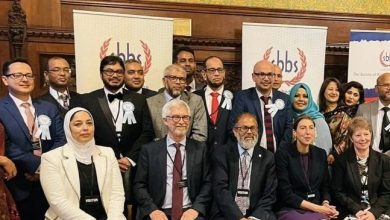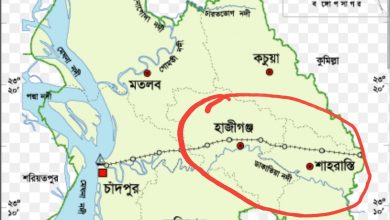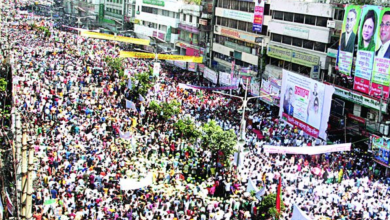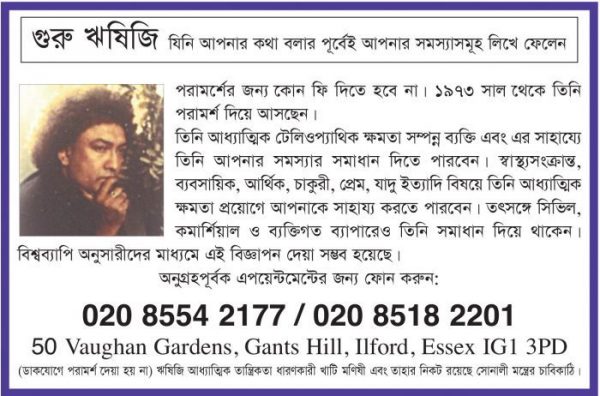Diplomacy and Conflict Resolution: The Legacy of President Zia

Shamsul Alam Liton, London
30th May, 2024.
Bangladesh commemorates the 43rd death anniversary of President Ziaur Rahman, a war hero and one of the most influential leaders in the history of Bangladesh. This article written to serve as a tribute to a man whose vision and leadership have left an indelible mark on the path towards peace and stability in South Asia.
President Ziaur Rahman was a pivotal figure in the history of Bangladesh. His contributions to the nation, both as a military leader and as a statesman, are profound and far-reaching. Today, we reflect on his diplomatic efforts, his strategies for conflict resolution, and the legacy he has left behind in fostering peace within the region.
Early Life and Military Career
Ziaur Rahman was born on January 19, 1936, in the village of Bagbari in Bogura District. From an early age, he displayed qualities of leadership and resilience.
He joined the Pakistan Military Academy and was commissioned as a second lieutenant in the Pakistan Army in 1954. His military career was distinguished by his courage and dedication, which were most notably displayed during the Indo-Pak War of 1965, where he earned special recognition for his professional excellence and bravery. However, it was during the tumultuous period leading up to the independence of Bangladesh that Ziaur Rahman truly came into prominence.

On March 26, 1971, he made the historic declaration of independence, galvanizing the Bengali population to rise against the oppressive regime of Pakistan. “I Major Zia, do hereby declare the independence of Bangladesh”. His role in the Liberation War was instrumental, and he emerged as a national hero, transition to statesmanship.
Following the independence of Bangladesh, Ziaur Rahman transitioned from a military leader to a statesman, a journey marked by significant challenges and achievements.
The country was in dire need of stability, economic development, and international recognition following the ignominious fall of Sheikh Mujib. Zia’s pragmatic approach to governance and diplomacy was crucial in navigating these early years of nation-building. One of his first acts as a leader was to focus on consolidating the newly found independence and ensuring the country’s sovereignty, given that the country was surrounded by a hostile big nation. He understood that diplomacy would play a critical role in this endeavor. Those were the times when the world was a bipolar world bitterly divided into the so-called Western and the Soviet block. Ziaur Rahman’s diplomatic efforts were characterized by a strategic balancing act between major global powers and fostering regional cooperation.
Diplomatic Initiatives
Establishing International Relations President Ziaur Rahman’s approach to diplomacy was multifaceted. He sought to establish and strengthen relationships with countries across the world, recognizing that Bangladesh’s future depended on its ability to integrate into the global community.

Under his leadership, Bangladesh became a member of the United Nations security council, which was a significant milestone in gaining international recognition and support and acceptance as a dignified member of the world body of Nations. Ziaur Rahman was adept at navigating the complexities of Cold War geopolitics. He maintained a non-aligned stance, engaging with both the Western bloc and the Soviet Union. This balanced approach allowed Bangladesh to receive aid and support from diverse sources, which was crucial for the country’s post-war reconstruction.



Regional Diplomacy and SAARC
One of President Ziaur Rahman’s most notable contributions to regional diplomacy was his role in the formation of the South Asian Association for Regional Cooperation (SAARC).

He envisioned SAARC as a platform for fostering economic, social, and cultural cooperation among South Asian countries. His efforts culminated in the first summit of SAARC in Dhaka in 1985, which laid the foundation for regional collaboration, although he was not alive at that time.
Ziaur Rahman’s vision for SAARC was rooted in the belief that regional stability and prosperity could only be achieved through cooperation and dialogue. He advocated for conflict resolution through peaceful means and emphasized the importance of economic integration as a pathway to peace. His legacy in this regard continues to influence the policies and initiatives of SAARC to this day. The paralysing of SAARC by the current regime of Sheikh hasina is only helping her mentors in India in South Asia became more insecured then it was ever before.
Conflict Resolution and Peacebuilding
The Chittagong Hill Tracts Issue. One of the significant internal conflicts that President Ziaur Rahman had to address was the insurgency in the Chittagong Hill Tracts (CHT). The region, inhabited by various indigenous communities, had been a site of tension and unrest. Ziaur Rahman recognized the need for a comprehensive approach to resolve this conflict. He initiated dialogue with the leaders of the indigenous communities, seeking to understand their grievances and aspirations. His administration introduced various measures aimed at integrating the region into the national framework while respecting the unique cultural identity of its inhabitants. Although the conflict in CHT would continue beyond his tenure, Zia’s efforts laid the groundwork for subsequent peace negotiations.
Relations with India
Ziaur Rahman’s diplomatic acumen was also evident in his handling of relations with it’s giant neighbour India. The two countries shared a complex history, and their relationship was marked by both cooperation and tension. Ziaur Rahman worked towards fostering a relationship based on mutual respect and cooperation. He engaged in dialogue with Indian leaders to address issues such as border disputes and water sharing. His administration sought to build trust and enhance cooperation in areas of mutual interest, such as trade and security. Ziaur Rahman’s pragmatic approach helped in easing tensions and promoting a more stable and cooperative relationship between Bangladesh and India.
The Rohingya Refugee Crisis
Another significant challenge during Ziaur Rahman’s tenure was the influx of Rohingya refugees from Burma, the present day Myanmar. The humanitarian crisis required a delicate balance of diplomacy and humanitarian action. Ziaur Rahman worked with international organizations and engaged in dialogue with the Myanmar government to address the issue. His administration provided refuge and support to the displaced Rohingya population, reflecting Bangladesh’s commitment to human rights and humanitarian values. Ziaur Rahman’s handling of the crisis showcased his ability to navigate complex international issues while upholding principles of compassion and justice.
Neutral mediator in Iran-Iraq war
President Ziaur Rahman played a crucial role as an honorable mediator between Iran and Iraq during their prolonged and devastating conflict. His diplomatic acumen and reputation for integrity earned him the respect and acceptance of both parties. President Ziaur Rahman emphasized to both leaders that the only plausible way to end the war was to cease hostilities and return to the negotiation table. He wisely predicted that despite the continuation of fighting, the conflict would ultimately be resolved through dialogue. Tragically, his premature death prevented him from witnessing the fulfillment of his prediction. However, his words proved prophetic, as the war eventually ended with a negotiated settlement, affirming his belief in the power of diplomacy and peaceful resolution.
Economic DiplomacyTrade and Investment
Economic development was a cornerstone of Ziaur Rahman’s vision for Bangladesh. He believed that economic stability was essential for peace and conflict resolution. His administration implemented policies aimed at attracting foreign investment and promoting trade. Ziaur Rahman engaged in economic diplomacy, seeking to build partnerships with countries and international organizations. His efforts resulted in increased foreign aid and investment, which played a crucial role in the country’s development. He also emphasized the importance of regional economic cooperation, advocating for initiatives that would enhance trade and connectivity within South Asia.
Agricultural and Rural Development
Recognizing the importance of agriculture in Bangladesh’s economy, Ziaur Rahman introduced various initiatives to boost agricultural productivity and support rural development. His policies aimed at improving food security and reducing poverty, which were essential for social stability and peace. Ziaur Rahman’s administration implemented land reforms, provided support for farmers, and invested in infrastructure development. These measures contributed to increased agricultural output and improved living standards for rural communities. His focus on rural development was a testament to his commitment to inclusive growth and social equity.
Legacy and Lessons for the Future
As we reflect on the legacy of President Ziaur Rahman, it is evident that his contributions to diplomacy and conflict resolution have had a lasting impact on Bangladesh and the broader South Asian region. His vision for a peaceful, prosperous, and stable South Asia continues to inspire leaders and policymakers.
Promoting Dialogue and Cooperation
One of the key lessons from Ziaur Rahman’s legacy is the importance of dialogue and cooperation in resolving conflicts. He believed in engaging with all stakeholders, understanding their perspectives, and finding common ground. This approach is particularly relevant in today’s world, where conflicts and divisions continue to pose significant challenges.
Balancing National Interests and Global Engagement
Ziaur Rahman’s ability to balance national interests with global engagement was a hallmark of his diplomatic strategy. He recognized that Bangladesh’s prosperity and stability were intertwined with its relations with the international community. His legacy underscores the need for countries to adopt a balanced and pragmatic approach to foreign policy.
Emphasizing Economic Development
Economic development was central to Ziaur Rahman’s vision for peace and stability. His focus on economic diplomacy, trade, and investment highlights the crucial role of economic development in conflict resolution. Ensuring inclusive growth and addressing economic disparities are essential for building sustainable peace.
Upholding Humanitarian Values
Ziaur Rahman’s handling of humanitarian crises, such as the Rohingya refugee crisis, reflects his commitment to humanitarian values and human rights. His legacy serves as a reminder of the importance of compassion, justice, and solidarity in addressing humanitarian challenges.
Conclusion
In conclusion, President Ziaur Rahman’s legacy as a diplomat and a statesman is a testament to his visionary leadership and unwavering commitment to peace and stability. His efforts in resolving conflicts, promoting regional cooperation, and fostering economic development have left an enduring impact on Bangladesh and South Asia. As we honour his memory on this 43rd death anniversary, let us draw inspiration from his legacy and continue to work towards a more peaceful, prosperous, and stable region. The lessons from his life and leadership are as relevant today as they were during his time, and they offer valuable insights for addressing the challenges of our contemporary world.
Writer: Shamsul Alam Liton: Editor, Weekly SURMA.








